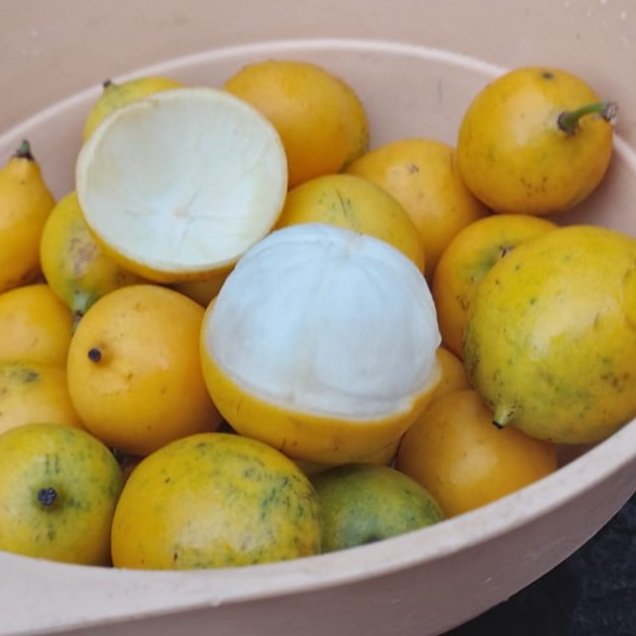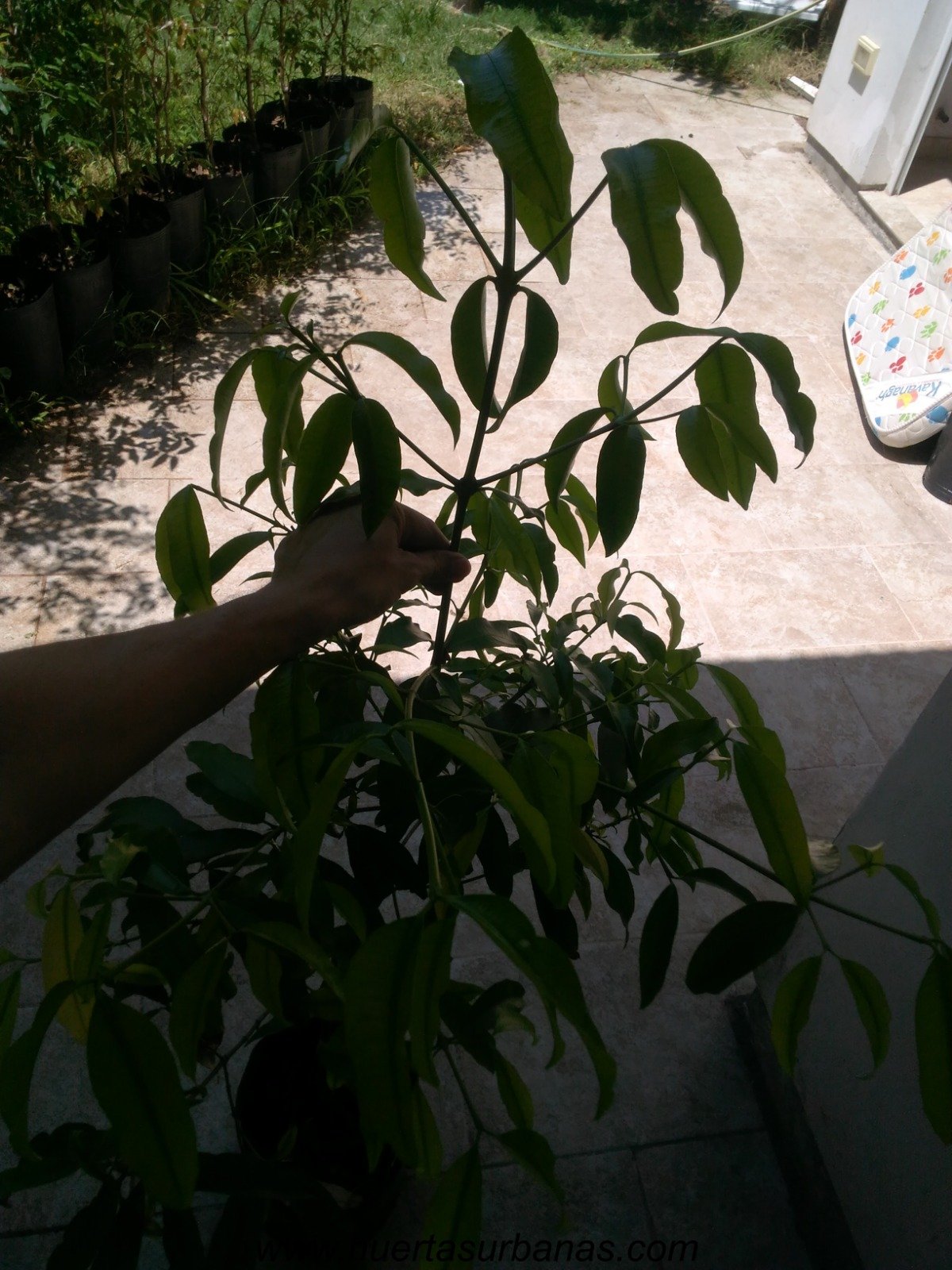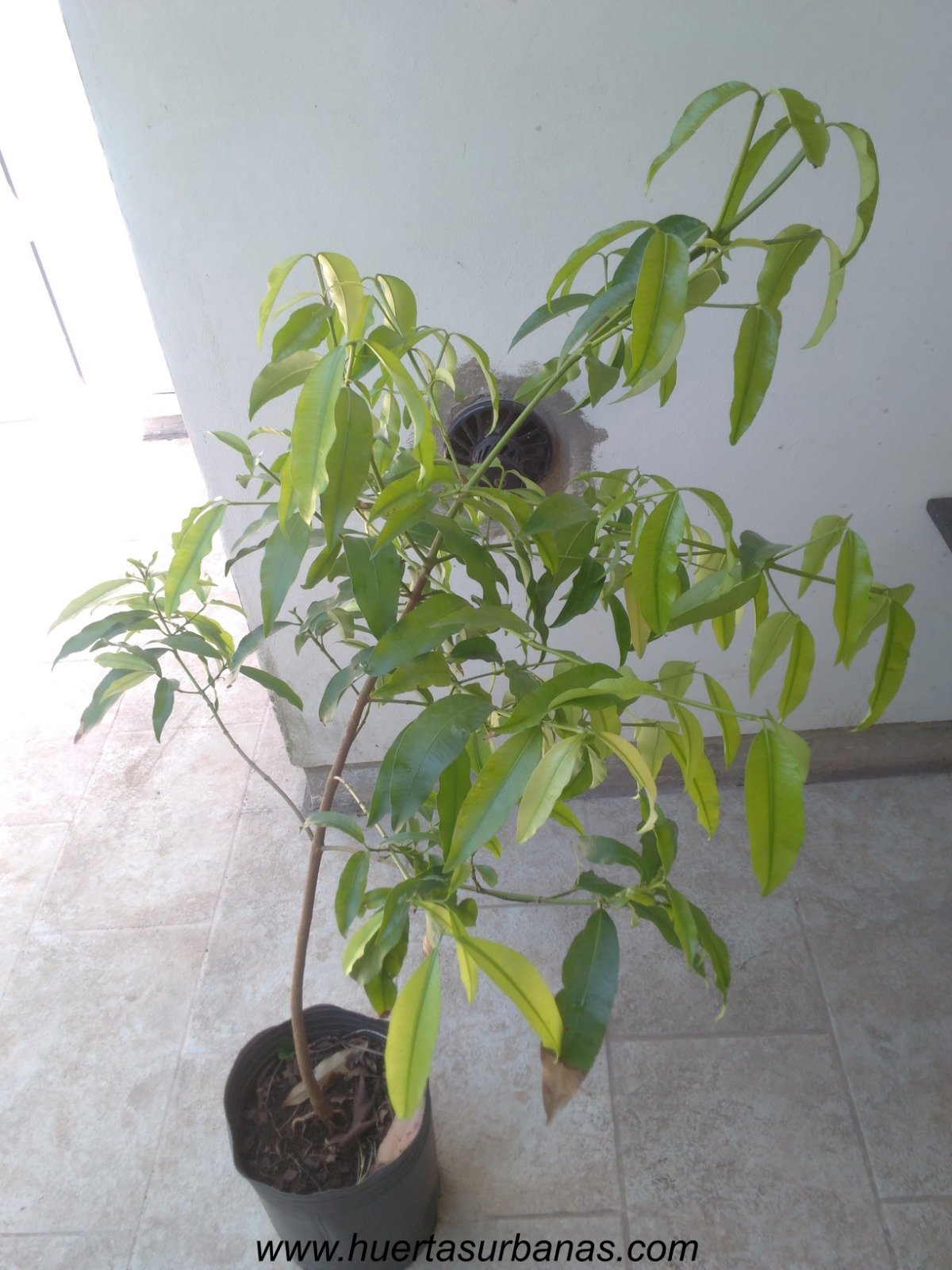Garcinia Gardneriana
Seeds were sourced from Marcos in Argentina. Pacurí, also known as "Beso de Miel" in Guarani, is an indigenous fruit with deep cultural significance in Argentina. Its name, meaning "Honeyed Kiss," captures the sweet and poetic essence of the fruit. This versatile shrub, native to Brazil, thrives in diverse ecosystems from the Amazon rainforest to the cerrado, coastal sandbanks, and Pantanal. Pacurí has varying forms and names, including Uvacupari and Bacoparí, and requires further research to distinguish between species like G. gardneriana and G. brasiliensis. It grows between 2 to 4 meters in full sunlight or up to 20 meters in forests, with smooth, berry-like fruits rich in flavor. The plant is adaptable to different climates and soil types, preferring temperatures between 12-28°C and needing a minimum of 90 days without rain. Pacurí fruits, which are harvested from June to October, offer a sweet, astringent taste and can be enjoyed fresh. It also has ornamental value, making it ideal for orchards, farms, and reforestation. With its resilience and beauty, Pacurí holds ecological and cultural importance, and its cultivation requires minimal irrigation and strategic planting techniques.
You are purchasing a single seed. Seeds are shipped in humid vermiculite.
Seeds were sourced from Marcos in Argentina. Pacurí, also known as "Beso de Miel" in Guarani, is an indigenous fruit with deep cultural significance in Argentina. Its name, meaning "Honeyed Kiss," captures the sweet and poetic essence of the fruit. This versatile shrub, native to Brazil, thrives in diverse ecosystems from the Amazon rainforest to the cerrado, coastal sandbanks, and Pantanal. Pacurí has varying forms and names, including Uvacupari and Bacoparí, and requires further research to distinguish between species like G. gardneriana and G. brasiliensis. It grows between 2 to 4 meters in full sunlight or up to 20 meters in forests, with smooth, berry-like fruits rich in flavor. The plant is adaptable to different climates and soil types, preferring temperatures between 12-28°C and needing a minimum of 90 days without rain. Pacurí fruits, which are harvested from June to October, offer a sweet, astringent taste and can be enjoyed fresh. It also has ornamental value, making it ideal for orchards, farms, and reforestation. With its resilience and beauty, Pacurí holds ecological and cultural importance, and its cultivation requires minimal irrigation and strategic planting techniques.
You are purchasing a single seed. Seeds are shipped in humid vermiculite.
Seeds were sourced from Marcos in Argentina. Pacurí, also known as "Beso de Miel" in Guarani, is an indigenous fruit with deep cultural significance in Argentina. Its name, meaning "Honeyed Kiss," captures the sweet and poetic essence of the fruit. This versatile shrub, native to Brazil, thrives in diverse ecosystems from the Amazon rainforest to the cerrado, coastal sandbanks, and Pantanal. Pacurí has varying forms and names, including Uvacupari and Bacoparí, and requires further research to distinguish between species like G. gardneriana and G. brasiliensis. It grows between 2 to 4 meters in full sunlight or up to 20 meters in forests, with smooth, berry-like fruits rich in flavor. The plant is adaptable to different climates and soil types, preferring temperatures between 12-28°C and needing a minimum of 90 days without rain. Pacurí fruits, which are harvested from June to October, offer a sweet, astringent taste and can be enjoyed fresh. It also has ornamental value, making it ideal for orchards, farms, and reforestation. With its resilience and beauty, Pacurí holds ecological and cultural importance, and its cultivation requires minimal irrigation and strategic planting techniques.
You are purchasing a single seed. Seeds are shipped in humid vermiculite.





